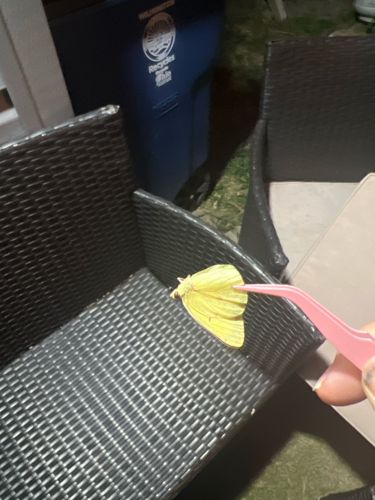Clouded Sulphur Butterfly
Scientific Name: Colias philodice
Order & Family: Lepidoptera (Order), Pieridae (Family)
Size: Wingspan typically ranges from 3.5 to 6 cm (1.4 to 2.4 inches).

Natural Habitat
Open fields, meadows, alfalfa fields, gardens, roadsides, and disturbed areas. They are common across North America.
Diet & Feeding
Adult butterflies feed on nectar from a variety of flowers, especially legumes. Caterpillars feed on the leaves of host plants, primarily belonging to the legume family (Fabaceae), such as clover (Trifolium), alfalfa (Medicago sativa), and vetch (Vicia).
Behavior Patterns
Clouded Sulphurs are diurnal, meaning they are active during the day. They have a rapid, erratic flight pattern. Males often patrol open areas looking for females. They undergo complete metamorphosis, with egg, larval (caterpillar), pupal (chrysalis), and adult stages. Several broods can occur per year in warmer climates.
Risks & Benefits
Risks: In large numbers, caterpillars can occasionally cause minor damage to agricultural crops like alfalfa and clover. Benefits: As adults, they are important pollinators for many flowering plants. Their presence indicates a healthy ecosystem. Caterpillars serve as a food source for various predators.
Identified on: 9/13/2025